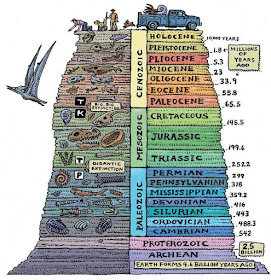Bringing new cases, the age will share the truth & knowledge. Depicting the endless corruption, debt, hate, control and battle that is conditioned into our everyday lives. It will exist for the years 2010 to 2020 (The information age). It will be as even sided & independent as possible as we go through the greatest transition age of power & energy the human race has ever experienced
"The world, nor the universe is a small place, its 1 natural consciousness aware of itself"
Friday, 6 January 2017
CASE 462 - The different ages of human civilization
Africa provides a comprehensive and contigious time line of human development going back at least 7 million years. Africa, which developed the world's oldest human civilization, gave humanity the use of fire a million and half to two million years ago. It is the home of the first tools, astronomy, jewelry, fishing, mathematics, crops, art, use of pigments, cutting and other pointed instruments and animal domestication. In short Africa gave the world human civilization. Millions of years ago human life started in Africa, Australopithecus aphaeresis and Australopithecus africanus and Australopithecus robustus were all key rungs in the development of humanity. These fossils were found in East and South Africa (Azania). Some of the fossils may be as old as 5 million years. For example Australopithecus robustus fossils found in an East Turkana Kenya site were at least 4 million year old.
It is generally accepted that the Homo habilis were the first full fledge tool making ancestor of humans. The earliest archaeological evidence of toolmaking comes from the Koobi Fora section of East Turkana. These Homo habilis are believed to be at least 2.5 million years old. The name Homo habilis comes from the Leakeys. They found what they believed to be conclusive fossil evidence of the first humans in the Olduvai Gorge in Tanzania and gave these ancestors that name called Homo habilis.. The Olduvai Gorge Homo habilis existed at least a million and quarter years ago
Our knowledge of prehistory derives from surviving objects - the evidence of archaeology. History, by contrast, is based on documents. These various interconnections mean that history, civilization and writing all begin at the same time. That time is about 3100 BC.
The categorization of the past into discrete, quantified named blocks of time is called periodization. This is a list of such named time periods as defined in various fields of study. Major categorization systems include cosmological (time periods in the origin and evolution of the universe), geological (time periods in the origin and evolution of the Earth), anthropological (time periods in the origin and evolution of humans) and historical (written history).
The ingredients of civilization
Many different elements must come together before a human community develops to the level of sophistication commonly referred to as civilization. The first is the existence of settlements classifiable as towns or cities. This requires food production to be efficient enough for a large minority of the community to be engaged in more specialized activities - such as the creation of imposing buildings or works of art, the practice of skilled warfare, and above all the administration of a centralized bureaucracy capable of running the machinery of state.
20,000 to 8800 = Paleolithic era
8800BC to 4900BC = Mesolithic era
4900BC to 2000BC = Neolithic era
19300BC to 3300BC = The stone age
3300BC to 1300BC = The Bronze age
1300BC to 700BC = The Iron age
400 BC to 30BC = The Hellenistic period
50BC to 4th century = The roman empire
5th to 7th century = The Early medieval age
8th Century = The viking age
9th to the 11th century BC = was known as the middle ages
1100 to 1500's = The medieval age
1600's = The European renaissance and the age of discovery
1700's = Age of the new world and British industrial age
1800's = The late modern age or Victorian times
1880's to 1920's = The machine age
1900's = The oil age
1910's = World war 1
1920's = The roaring twenties
1930's = The great depression
The forties = The Atomic age and 2nd world war
The fifties = The space age
The swinging sixties = The age of culture
The seventies
The Eighties
The ninties
2000 to 2010 = The internet and big data age
2010 to 2020 = The information age
2020 to 2030 = The quantum age
2030 to 2040 = The space and planetary exploration age
2040 to 2050 = ????




No comments:
Post a Comment